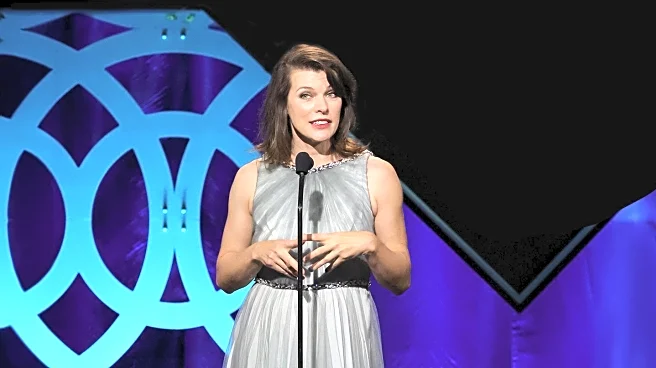What's Happening?
Signature Entertainment has acquired the UK and Irish rights to the psychological horror film 'The Cure,' starring David Dastmalchian and Ashley Greene. The film, centered around a 16-year-old who uncovers secrets about her biotech-billionaire parents, is set for release in 2026. This acquisition highlights the growing interest in 'smart' horror films overseas, with Signature aiming to capitalize on the film's high-concept narrative and star power. The deal was negotiated by Max Hart of Signature and producer Danielle Gasher, indicating a strategic move to secure early rights during festival season.
Why It's Important?
The acquisition of 'The Cure' by Signature Entertainment underscores the increasing demand for high-concept horror films in international markets. This trend reflects a shift in distributor strategies, prioritizing films with built-in buzz and intellectual appeal. The early rights sale during festival season allows Signature to position the film effectively for UK and Irish audiences, potentially influencing competitors to accelerate their bidding processes for similar genre titles. The film's release could impact the horror genre's landscape, encouraging more elevated narratives and star-driven projects.
What's Next?
With the planned release of 'The Cure' in 2026, Signature Entertainment is expected to initiate marketing campaigns tailored to UK and Irish audiences. The film's festival positioning and early acquisition may lead to increased visibility and anticipation among horror fans. Competitors may respond by securing rights to similar high-concept horror films, intensifying the race for elevated genre titles. The success of 'The Cure' could set a precedent for future acquisitions and distribution strategies within the horror film industry.
Beyond the Headlines
The acquisition of 'The Cure' reflects broader trends in the film industry, where distributors are increasingly seeking films that blend innovative concepts with star power. This approach aligns with audience preferences for intellectually engaging narratives and could influence the types of films produced and marketed in the coming years. The focus on psychological horror also highlights the genre's potential to explore complex themes and societal issues, offering filmmakers opportunities to push creative boundaries.









